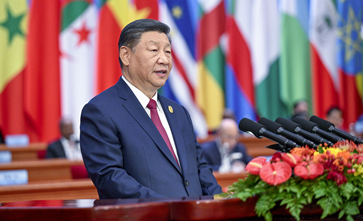
German agency: Abiy Ahmed mediates to bring the views closer between Al-Burhan and Hemedti
Ethiopia entered the Sudanese crisis, as its Prime Minister, Abiy Ahmed, visited the city of Port Sudan yesterday, in an attempt to mediate a direct meeting between the President of the Sovereign Council, Abdel Fattah Al-Burhan, and the Commander of the Rapid Support Forces, Mohamed Hamdan Dagalo (Hemedti).
The official Sudanese News Agency (SUNA) reported that the Chairman of the Sovereign Council, Abdel Fattah Al-Burhan, received the Ethiopian Prime Minister, Abiy Ahmed, at Port Sudan Airport, in his first visit since the start of the Sudan war.
A joint statement from Khartoum and Addis Ababa stated that the Ethiopian Prime Minister is accompanied by a high-level ministerial delegation to hold talks with their Sudanese counterparts, with the aim of strengthening and developing cooperation in various fields between Sudan and Ethiopia.
According to what analysts reported, Al-Burhan and Abiy Ahmed’s talks covered several important files, most notably the need to stop the war. In addition, discussions will include the meeting held by the African Union of Sudanese political and civil forces in Addis Ababa on July 10 and 11. The African Union summit on Sudan scheduled for July 15 of this month will also be discussed.
The meeting discusses the importance of the meeting between Al-Burhan and Mohamed Hamdan Dagalo “Hemedti”, Commander of the Rapid Support Forces, in response to the invitation of the Peace and Security Council of the African Union, at its meeting held last June at the level of heads of state and government.
Since mid-April 2023, the Sudanese army and the Rapid Support Forces have been engaged in a fierce war. The United Nations says that Sudan, which was one of the poorest countries in the world even before the war, is witnessing “one of the worst displacement crises in the world, and will likely soon witness the worst hunger crisis in the world.” 18 million Sudanese out of a population of 48 million suffer from severe food shortages.
Hundreds of thousands of women and children are now threatened with starvation, due to crises that relief workers feel helpless in response to due to the refusal to grant them entry visas and the imposition of high customs duties on food, in addition to the theft of warehouses and the difficulty of reaching those stranded near the front lines.
The health system in Sudan has almost completely collapsed, and Khartoum estimates the losses of this sector at about $11 billion. The war has destroyed the livelihoods of millions of Sudanese, including those working in the agricultural and herding sectors who constitute 80% of the country’s workforce, as a result of the expanding scope of the war and indiscriminate attacks on civilians.




